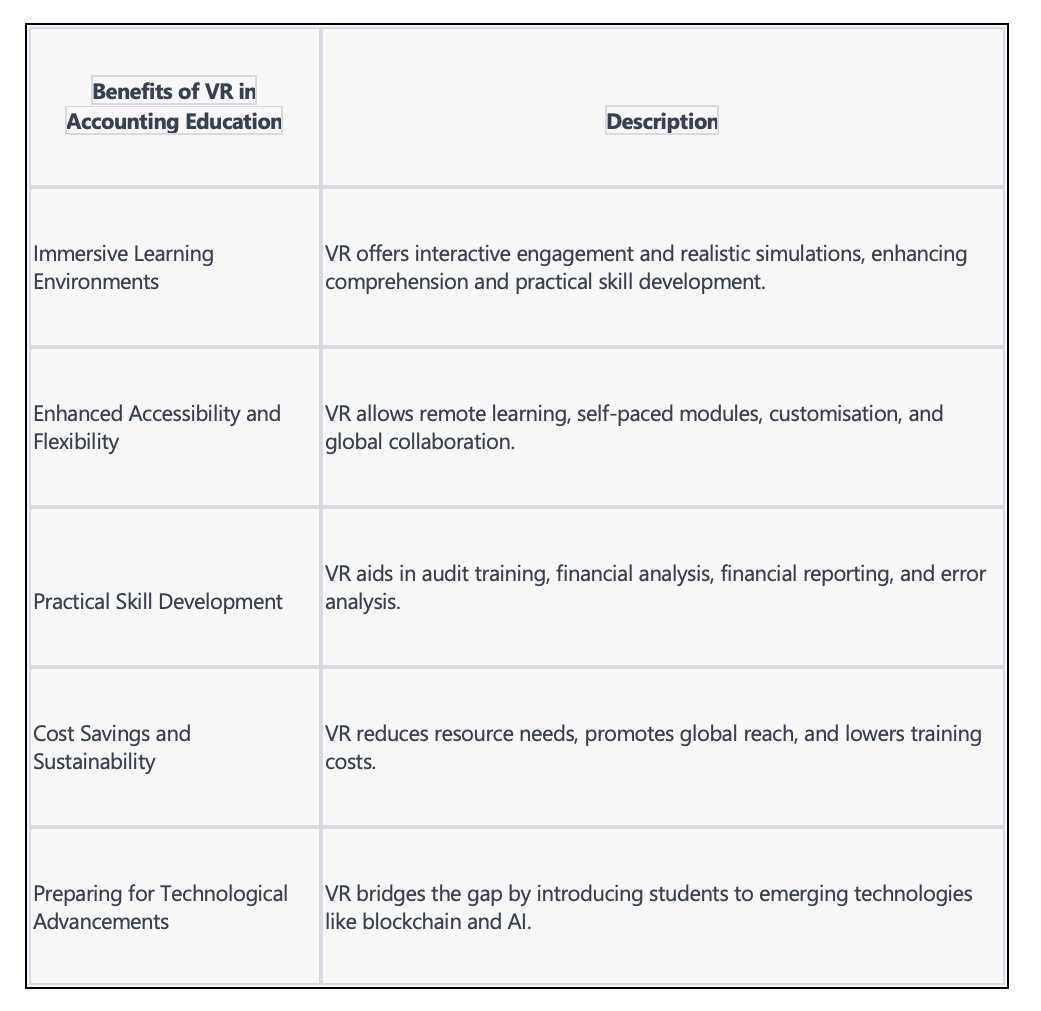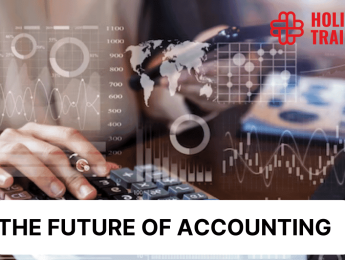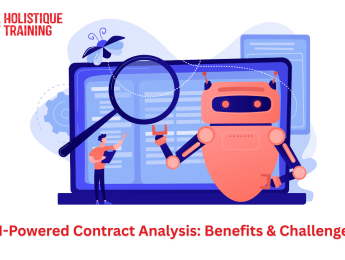Introduction
Accounting has come a long way over the years, evolving from manual record-keeping to sophisticated digital systems. With advancements in technology and changing business landscapes, the future of accounting holds exciting possibilities and transformative trends. In this comprehensive exploration of the subject, we will delve into the shifting paradigms of accounting, discuss critical trends to watch out for, analyse the future demand for accountants, and provide actionable advice for accountants in the present.
Accounting: Then vs. Now
Before delving into the future, let's take a closer look at the remarkable transformation that accounting has undergone over the years. From manual record-keeping to the advent of sophisticated digital systems, the shift has been monumental. Below, we'll delve into the key distinctions, accompanied by a table that succinctly illustrates the differences between accounting in the past and the modern era.
Accounting in the Past
In the past, accounting was characterised by:
Manual Calculations
Accountants relied on hand-written calculations for each financial transaction, making the process time-consuming and error-prone.
Paper-Based Ledgers
All financial records were meticulously recorded in physical ledger books, resulting in large volumes of paperwork.
Manual Reconciliation
Balancing accounts and ensuring accuracy required extensive manual effort, often leading to discrepancies.
Delayed Reporting
The lack of real-time data access meant financial reports were often outdated and less useful for timely decision-making.
Isolated Data
Information was siloed within physical ledgers, making it challenging to gain holistic insights into an organisation's financial health.
Accounting in the Modern Era
Today, accounting has undergone a dramatic evolution, thanks to technological advancements:
Automation
Routine tasks like data entry and calculations are automated, drastically reducing errors and saving valuable time.
Cloud-Based Platforms
Financial data is stored securely in the cloud, enabling real-time collaboration and access from anywhere.
Artificial Intelligence (AI)
AI-driven solutions streamline processes, offering enhanced data accuracy and insights for strategic decision-making.
Digital Reporting
Financial reports can be generated instantly, providing up-to-date information for agile decision-making.
Integrated Systems
Data from various departments and sources can be seamlessly integrated, providing a comprehensive view of an organisation's financial health.
Table: Accounting: then vs. now
Aspect | Accounting in the Past | Modern Accounting |
Data Entry | Manual calculations | Automated data entry |
Record Keeping | Paper-based ledgers | Cloud-based platforms |
Reconciliation | Manual and time-consuming | Automated and efficient |
Reporting | Delayed and less timely | Real-time and accurate |
Data Accessibility | Limited accessibility | Anytime, anywhere access |
Insights | Limited holistic insights | Comprehensive data analysis |
Technology Utilisation | Minimal | AI-driven solutions |
Critical Trends in the Future of Accounting to Keep an Eye On
As we peer into the future of accounting, it's crucial to explore the critical trends that are reshaping the industry. These trends not only signify a shift in how accounting is practised but also provide opportunities for accountants to stay at the forefront of their profession. Let's delve into these trends in greater detail and understand why they are significant.
1. Automation and Artificial Intelligence (AI)
Automation and Artificial Intelligence (AI) are spearheading a revolution in accounting. Here's a closer look at how they are transforming the profession:
Routine Task Elimination: Mundane tasks such as data entry, transaction categorisation, and bank reconciliations are being automated. This not only saves time but also reduces the risk of human errors.
Enhanced Accuracy:AI-driven systems have a remarkable ability to process vast amounts of financial data with precision, ensuring data accuracy that was previously unattainable through manual methods.
Data Insights:AI algorithms can identify patterns and anomalies in financial data, providing accountants with valuable insights for better decision-making.
Cognitive Automation:Cognitive technologies enable machines to learn and adapt, making them more capable of handling complex tasks, such as fraud detection and financial analysis.
Accountants must embrace this trend by learning to work alongside AI systems and leveraging their capabilities effectively. It's about transitioning from data processors to data analysts and strategists who use AI as a tool to enhance their decision-making.
2. Blockchain Technology
Blockchain technology is set to disrupt traditional accounting practices by introducing a decentralised and tamper-proof ledger system. Here's why it's a trend to watch:
Secure Transactions: Blockchain ensures the security and transparency of financial transactions. Each transaction is recorded in a block, linked cryptographically to the previous one, creating a chain of transactions that cannot be altered.
Smart Contracts: Smart contracts, self-executing agreements with the terms of the contract directly written into code, have the potential to automate various financial processes, including invoicing, payments, and auditing.
Streamlined Auditing: Blockchain-based audits eliminate the need for intermediaries and offer a real-time, transparent view of financial data, making audits more efficient and reliable.
To adapt to this changing landscape, accountants need to familiarise themselves withblockchain technology and understand how it can be integrated into financial processes. The ability to provide blockchain-based auditing services will be a valuable skill in the future.
3. Data Analytics and Predictive Insights
The future of accounting is increasingly data-driven, and data analytics is at the core of this transformation:
Data Extraction: Accountants will need to become proficient in extracting meaningful insights from vast amounts of financial data. This includes data from various sources like transactions, market trends, and customer behaviour.
Predictive Analytics:Predictive analytics can help forecast financial trends, identify potential risks, and optimise business strategies. It empowers accountants to provide proactive recommendations to clients or organisations.
Real-time Reporting:Data analytics tools enable real-time reporting and dashboards, providing decision-makers with up-to-the-minute information for agile decision-making.
Strategic Decision Support:Accountants who master data analytics can offer invaluable support in identifying growth opportunities, cost-saving strategies, and risk mitigation plans.
To excel in this trend, accountants should invest in data analytics skills, including proficiency in data visualisation tools and the ability to interpret complex data to drive actionable insights.
4. Remote Work and Cloud Computing
The COVID-19 pandemic accelerated the adoption of remote work and cloud-based accounting solutions.Statistics show that roughly two-thirds (67%) of accountants express a preference for cloud-based accounting solutions in comparison to on-premise software. That being said, here's why this trend will continue to shape the future of accounting:
Real-time Collaboration: Cloud-based platforms such asOdoo facilitate real-time collaboration among accounting teams and clients, regardless of geographical locations.
Data Accessibility:Financial data stored in the cloud is accessible from anywhere, allowing for greater flexibility in work arrangements.
Enhanced Security:Cloud service providers invest heavily in cybersecurity, often providing more robust protection than on-premises solutions.
Accountants need to adapt to remote work environments and prioritise cybersecurity practices to protect sensitive financial information. This trend not only offers flexibility but also strengthens the resilience of accounting practices in times of disruption.
The Future Demand for Accountants
While the accounting profession undergoes significant transformations driven by automation and technology, the demand for skilled accountants remains robust. In fact, the role of accountants is evolving from traditional number-crunchers to strategic advisors and ethical stewards. Let's delve deeper into why accountants will continue to be in high demand in the future:
Complex Financial Regulations
In an era of global commerce and intricate financial transactions, the regulatory landscape is becoming increasingly complex. Governments and regulatory bodies are continually introducing new financial regulations and compliance requirements. This complexity is evident in various sectors, from healthcare and finance to environmental sustainability and tax policies.
Accountants play a pivotal role in navigating this intricate regulatory environment. They serve as the bridge between organisations and the ever-changing regulatory landscape. Here's why their expertise is indispensable:
Compliance Assurance:Accountants ensure that organisations adhere to all relevant financial regulations, helping them avoid costly penalties and legal issues.
Accurate Reporting:The ability to interpret and apply complex accounting standards is crucial for producing accurate financial reports that stakeholders, including investors and tax authorities, rely on.
Risk Mitigation:By identifying potential compliance risks and providing strategies to address them, accountants safeguard organisations from financial and reputational harm.
Accountants with a deep understanding of evolving financial regulations will be in high demand, providing businesses with the assurance they need to operate within the bounds of the law.
Strategic Financial Management
As businesses strive to remain competitive and profitable, the role of accountants in strategic financial management becomes increasingly critical. Beyond traditional financial reporting, accountants are becoming trusted advisors in driving business growth and sustainability. Here's why their strategic acumen is in demand:
Cost Reduction:Accountants analyse financial data to identify opportunities for cost reduction, helping businesses operate more efficiently.
Revenue Optimisation: They offer insights into revenue generation strategies, pricing models, and market trends, enabling businesses to maximise their income.
Risk Management:Accountants assess financial risks and provide strategies to mitigate them, protecting organisations from unforeseen challenges.
Investment Decisions:Their financial analysis skills aid in evaluating potential investments, mergers, and acquisitions, ensuring informed decisions with a focus on long-term growth.
Accountants who can provide strategic financial guidance and contribute to an organisation's overall success will be sought after as essential partners in driving profitability and sustainable growth.
Advisory Services
As automation takes over repetitive and transactional tasks, accountants have more time to focus on advisory services. This shift allows them to provide personalised and value-added guidance to clients. Here's how advisory services are shaping the future of the profession:
Financial Planning:Accountants assist clients in creating comprehensive financial plans, helping them achieve their long-term financial goals.
Tax Optimisation:They identify tax-saving opportunities and develop strategies to minimise tax liabilities while ensuring compliance with tax laws.
Investment Strategies: Accountants offer insights into investment options, risk assessment, and portfolio diversification, empowering clients to make informed investment decisions.
Business Growth: Their expertise extends to helping businesses develop growth strategies, assess financial feasibility, and secure funding when necessary.
Accountants who excel in advisory services provide clients with customised solutions and actionable recommendations that go beyond numbers, fostering long-term relationships built on trust and expertise.
Trust and Ethical Standards
Accountants have a long-standing reputation as custodians of financial integrity and trust. In a digital age marked by data breaches and cyber threats, their role as ethical stewards has never been more crucial. Here's why trust and ethical standards are fundamental to the future of accounting:
Data Security: Accountants are responsible for safeguarding sensitive financial information, preventing unauthorised access, and mitigating the risk of data breaches.
Fraud Prevention:Their expertise in financial analysis allows them to detect and prevent fraudulent activities, ensuring the financial health of organisations.
Transparency: Accountants uphold ethical standards by providing transparent financial reporting and ensuring that stakeholders have a clear view of an organisation's financial position.
Risk Mitigation:They assess financial risks and vulnerabilities, developing strategies to protect organisations and maintain financial stability.
Accountants who prioritise ethical conduct and data security instil confidence in clients and organisations, reinforcing the critical role they play in maintaining financial integrity.
In summary, the future demand for accountants extends beyond traditional roles. As regulatory complexity grows, businesses seek strategic financial guidance, personalised advisory services, and ethical stewardship. Accountants who adapt to these evolving demands and continue to enhance their expertise will remain indispensable in an ever-changing financial landscape. Their contributions to compliance, growth, and trust ensure that they will continue to be valued members of the professional community.
What You Need to Do as an Accountant Now
To thrive in the future of accounting, accountants need to adapt and acquire new skills. Here's what you can do to stay ahead:
1. Embrace Technology
Familiarise yourself with accounting software, cloud-based platforms, and automation tools. Learn to harness the power of AI and data analytics to augment your abilities and provide greater value to clients or your organisation.
2. Develop Soft Skills
Alongside technical expertise, accountants must nurture their soft skills. Effective communication, critical thinking, and problem-solving abilities will be essential in advising clients, collaborating with colleagues, and making strategic decisions.
3. Lifelong Learning
Commit to continuous learning and professional development. Stay updated on accounting regulations, emerging technologies, and industry trends through workshops, webinars, and relevant certifications. By staying current, you can adapt to evolving requirements and seize new opportunities.
4. Cultivate Client Relationships
Building strong client relationships will be crucial in an increasingly digital world. Understand your clients' businesses, anticipate their needs, and provide personalised, value-added services. By demonstrating your expertise and dedication, you can cultivate long-term partnerships.
Why You Need to Invest in Practical Accounting Training Now More Than Ever
In addition to understanding the critical trends and demands in the future of accounting, it is imperative for accountants to recognise the importance of investing in practical accounting training now more than ever. This investment complements the advice mentioned earlier on what accountants need to do in the present.
By acquiring practical accounting training, accountants can effectively navigate the changing landscape and stay ahead of the curve. Practical training allows them to master the tools and technologies shaping the industry, ensuring they can leverage automation, AI, and data analytics to their advantage. Moreover, staying updated on the ever-changing regulatory environment through training helps accountants maintain compliance and accurate financial reporting.
The investment in practical accounting training also hones their data analysis and decision-making skills, enabling them to extract meaningful insights and provide strategic recommendations to clients or organisations.
By investing in specialised training, accountants can differentiate themselves from automation and stay ahead in a rapidly evolving job market. Ultimately, by coupling the actionable steps outlined earlier with a commitment to continuous learning, accountants can position themselves as agile and indispensable professionals, ready to thrive in the future of accounting.
Exciting Developments in Accounting
In addition to the core content of our blog post, let's explore three intriguing facets related to the future of accounting that shed light on the evolving landscape and the opportunities it presents.
1. The Rise of Virtual Reality (VR) in Accounting Education
The world of education is undergoing a profound transformation, and accounting is no exception. One of the fascinating developments on the horizon is the integration of Virtual Reality (VR) into accounting education.
Imagine a scenario where aspiring accountants can put on VR headsets and step into a virtual financial environment. They can interact with three-dimensional representations of balance sheets, income statements, and ledgers, gaining a deeper understanding of complex financial concepts. VR technology can simulate real-world scenarios, allowing students to practise auditing, financial analysis, and decision-making in a risk-free, immersive setting.
This approach not only makes learning accounting more engaging but also enhances retention and comprehension. As the future of accounting requires accountants to be adept in both technology and financial acumen, incorporating VR into accounting education could be a game-changer. It equips the next generation of accountants with practical skills and a strong foundation to navigate the digital era.
Table 2: Benefits of VR in accounting education

2. The Emergence of Sustainable Accounting
As global awareness of environmental and social issues continues to grow, the field of sustainable accounting is gaining prominence. Beyond traditional financial reporting, companies are under increasing pressure to disclose their environmental and social impact.
Sustainable accounting involves measuring and reporting on a company's environmental, social, and governance (ESG) performance. This includes tracking carbon emissions, assessing supply chain sustainability, and evaluating diversity and inclusion efforts. As consumers, investors, and regulators demand greater transparency, accountants with expertise in sustainable accounting will be in high demand.
Furthermore, sustainable accounting presents a unique opportunity for accountants to play a pivotal role in shaping corporate strategies. By analysing ESG data, accountants can provide valuable insights that drive sustainable business practices, reduce risks, and enhance reputation. This trend aligns with the growing importance of ethical and responsible business conduct in the modern world.
3. The Role of Accountants in Cybersecurity
With the increasing digitisation of financial data and the rise in cyber threats, the role of accountants is expanding into the realm of cybersecurity. Accountants are uniquely positioned to safeguard sensitive financial information and protect against data breaches.
In the future, accountants may be responsible for developing and implementing robust cybersecurity protocols within organisations. This includes ensuring the encryption of financial data, monitoring for unusual transactions, and conducting regular security audits. Accountants with expertise in cybersecurity will be instrumental in preventing financial fraud and maintaining the trust of clients and stakeholders.
Moreover, the intersection of accounting and cybersecurity opens up new career paths. Professionals who can bridge the gap between financial expertise and cybersecurity know-how will be in high demand. This evolving role underscores the dynamic nature of the accounting profession and the need for accountants to adapt to emerging challenges and opportunities.
In summary, the future of accounting is a dynamic landscape filled with exciting developments, from the integration of VR in education to the rise of sustainable accounting and the expanding role of accountants in cybersecurity. As the profession continues to evolve, accountants who stay informed and embrace these trends will not only thrive but also play a pivotal role in shaping the financial future of businesses and organisations.
Conclusion
As we peer into the future of accounting, it's evident that the profession will undergo significant transformations driven by automation, AI, and evolving business needs. Accountants must embrace technology, acquire new skills, and adapt to these changes. The demand for skilled accountants will persist, albeit in roles that require strategic thinking, data analysis, and ethical stewardship.
By staying ahead of critical trends, accountants can position themselves as trusted advisors, offering valuable insights and strategic guidance to businesses and individuals. The future of accounting holds immense potential, and with the right mindset and proactive approach, accountants can embark on an exciting journey into a dynamic and rewarding era of finance.
As you embark on this journey, make sure to check out our course, ‘Accounting and Finance for Non-Financial Professionals.’ This course is specifically designed to equip non-financial professionals with the essential knowledge and skills to navigate the world of accounting confidently. By joining our course, you can gain practical insights, learn from industry experts, and acquire the expertise needed to make informed financial decisions. Invest in your professional growth today and join our course to unlock new opportunities and excel in the dynamic realm of accounting.


























